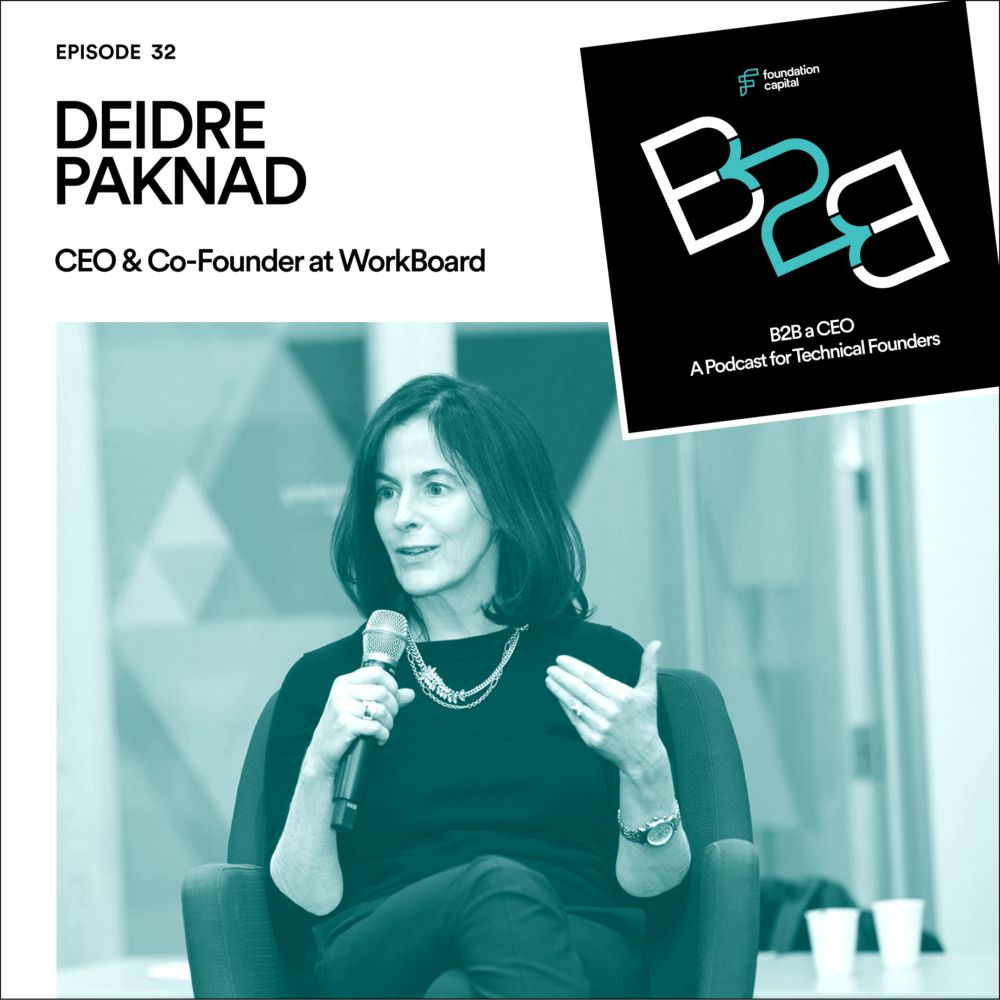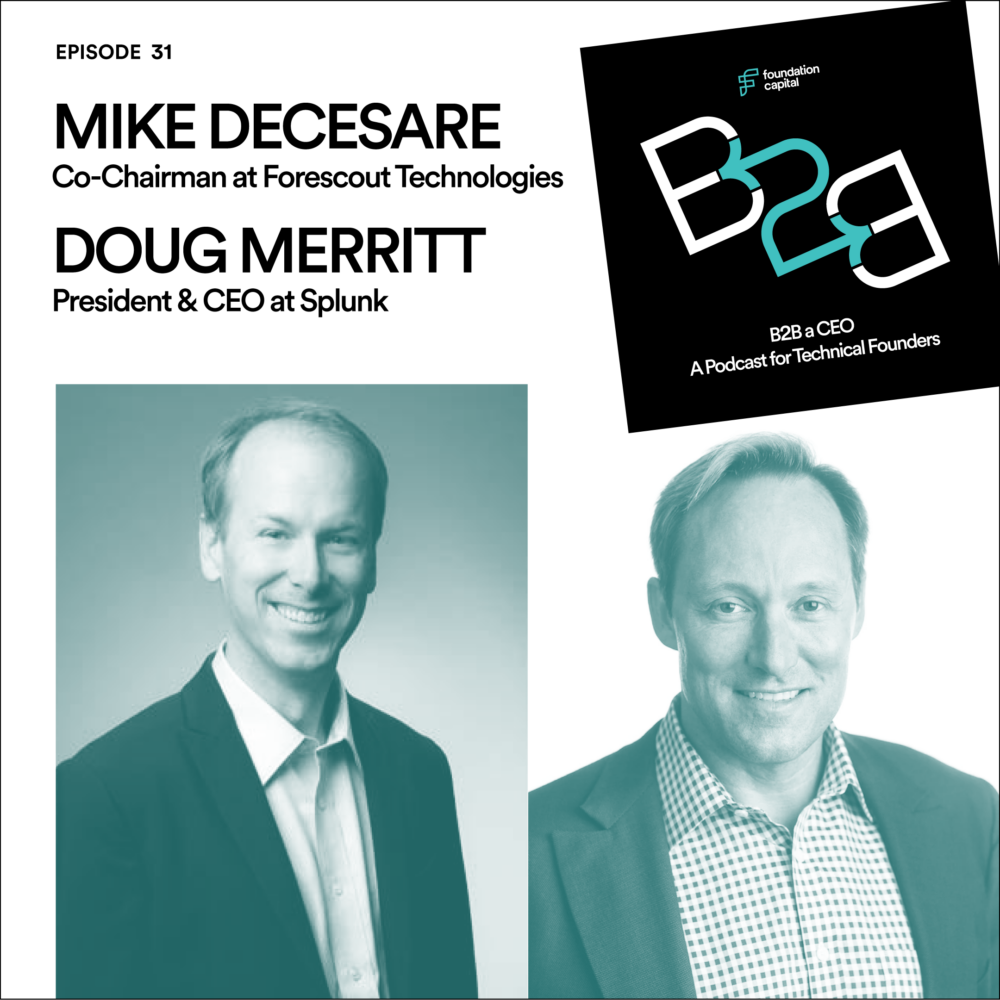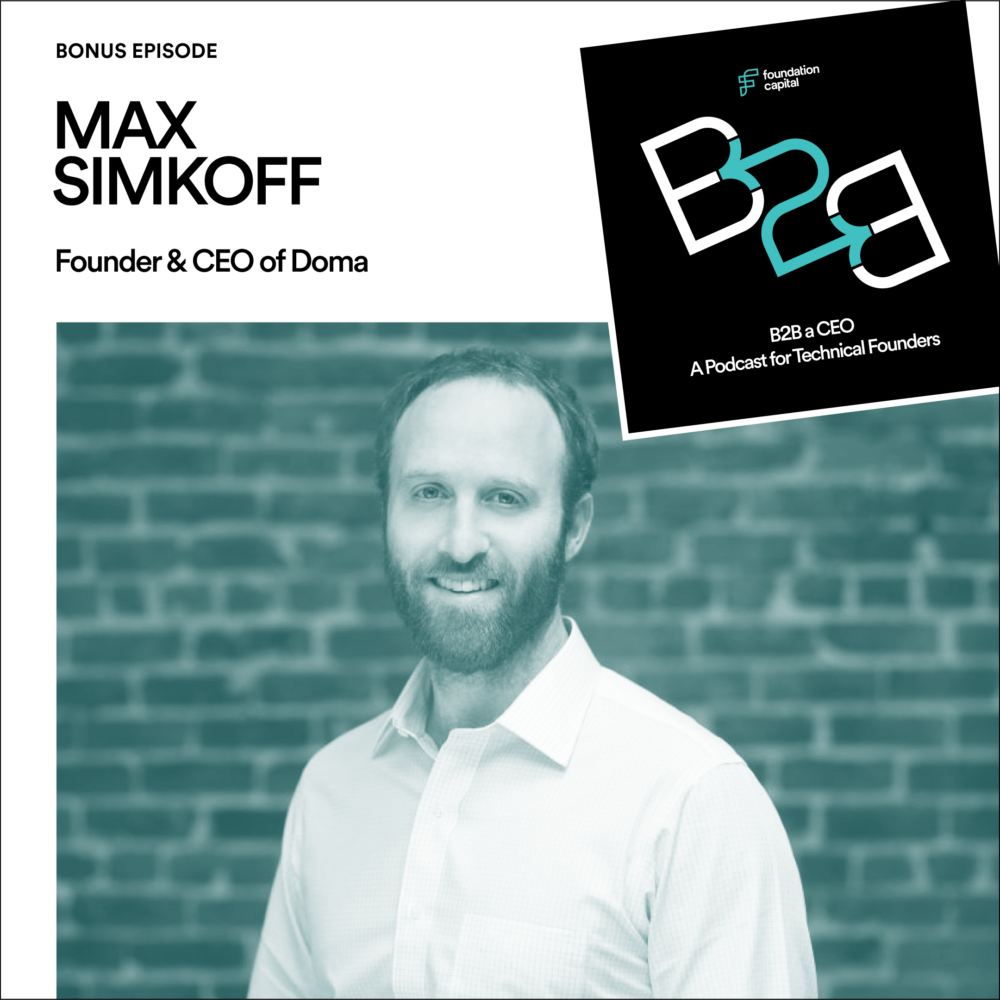Episode 30
How to Go From Idea to IPO
With George Kurtz, Co-Founder & CEO of CrowdStrike & Michelle Zatlyn, Co-Founder & COO of Cloudflare
By Ashu Garg
05.04.21
In this session from our FC BUILD conference, Ashu interviews two billion-dollar founders. When it comes to scaling management, engineering culture, and anticipating future markets, Cloudflare COO Michelle Zatlyn and CrowdStrike CEO George Kurtz are the ones to ask. Each shares a bit about their respective company’s journeys — plus, George explains how a company is like a race car!
I. The Recap
Ashu spoke to Michelle Zatlyn and George Kurtz, a pair of founders who have mastered the art of scaling. During this panel from our FC BUILD conference, the three discuss the best ways to cultivate a strong culture while growing from the ground up.
About Michelle Zatlyn
If there is such a thing as the “universal dream” for an entrepreneur, it’s this: win a business competition at Harvard Business School, raise VC money (in 2008, no less!), see your company through an over 20-plus-billion-dollar valuation and an IPO, while remaining COO. Michelle reflects on what her team did right.
Her advice:
- Make your money go a long way — Cloudflare was originally funded with $2 million — an unthinkable amount today. Being nimble and resourceful can be the difference between a company’s life and death.
- Anticipate the second act — It’s not enough to do one thing right. You need to anticipate the future needs of the market and plan your second act before your first product becomes obsolete.
- Remember to wear your business hat — Once you’ve figured out what’s working, you need to switch your perspective to that of a business owner — one with a different set of responsibilities.
- Look for the trifecta — 1. Something good for the world, 2. Something that makes for good business, and 3. Something that you’re passionate about.
About George Kurtz
A two-time founder/CEO plus former CTO of McAfee — George Kurtz knows a few things about scaling and company leadership.
When asked about the secret behind his leadership style, he points to people and culture.
- The right stuff — The most important ingredient to company success is finding the right people. For George, it comes down to a few things: multidisciplinary people; people who play for the name on the front of the jersey; who like to win but hate to lose; who take the high road. Just like car racing, winning takes an all-star team — it’s not just about the driver.
- Sweat the details, but don’t micromanage — With the best people, management means giving your team the opportunity to do their best work. As the company scales, the CEO should continue to know the details of the organization, including the projects each team works on. Case in point: George still sets his eyes on every deal done by Crowdstrike.
- A focused culture — In times of trouble, the mission carries a team through. Crowdstrike began with the mission to “stop bad guys,” and that’s still what powers the company today.
- Company culture is like a race car — As George puts it, if a car’s gearbox is rattling, it won’t fix itself — as with vehicles, you need to be intentional about building and maintaining culture. Ashu presses Michelle and George on the ways in which they oversee and reinforce their companies’ cultures.
- Culture starts at the top but is built at the bottom — Rather than providing a list of values, Michelle describes “Cloudflare Stories” — real examples of times when the company made a decision that most other companies would not make.
- Culture starts at the top but is built at the bottom — As a company scales, it’s important to recognize that not everyone can scale with it. The people you start the dream with are rarely who you end it with; different stages require different people. For example, George sees salespeople as belonging to the mutually exclusive categories of evangelical (able to work with limited direction), scalers, and coin-operated (needing heavy guidance). Knowing these roles, there are pivotable points where you need to ask yourself whether you would rehire some of your team at the company’s current stage — more often than not, that provides your answer.
Published on 05.04.21
Written by Ashu Garg


